Stage IV Metastatic NSCLC Shares Key Learnings on Her Journey
Stage IV Metastatic NSCLC Shares Key Learnings on Her Journey from Patient Empowerment Network on Vimeo.
Lung cancer patient Carol shares her journey with stage IV metastatic non-small cell lung cancer (NSCLC). Watch as she discusses the symptoms she experienced, how she pushed when her symptoms were dismissed, and key learnings that empowered her on her journey.
See More from Best Lung Cancer Care
Related Resource:
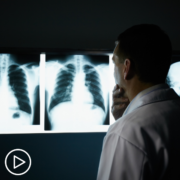
|
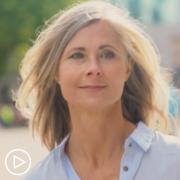
|
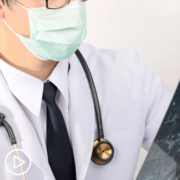
|
Transcript:
My name is Carol, and I was diagnosed with stage IV metastatic non-small cell lung cancer (NSCLC) at the age of 53. My initial symptoms were dismissed, but I advocated for myself to receive an accurate diagnosis.
My lung cancer journey began in an emergency room right after New Year’s Day 2022 with severe headache symptoms of head pressure, pain, and vomiting. I knew it was not a normal headache. The ER team started to treat me for a migraine and wanted to send me home. I pushed back and explained that I’d been experiencing symptoms of fatigue, frequent headaches, dizziness, and a weird buzzing sound in my ear over the last few months. I knew that I didn’t feel right and insisted on getting a brain scan.
After waiting hours to get in for the brain scan, they were shocked to find 10 brain metastases. Then a PET scan uncovered the root cause – a tumor in my lung and multiple metastases throughout my body, including leptomeningeal disease. Back when I started having symptoms, I tried to book an appointment with a neurologist, but there wasn’t an opening until February. I shudder to think what would have happened if I had left the ER on January 3 to wait until February. We know our bodies best and need to make sure we push for answers when we know there’s something more to the story. This pushing can be uncomfortable, because no one wants to be labeled “a difficult patient”, but it’s our health – and sometimes our life – at stake.
Following my diagnosis, I received one round of chemo until my genetic testing came back with the EGFR exon 19 deletion result. Then I was switched to a more targeted medication and still receive monthly infusions for bone mets.
Physically my treatment allows me to live an almost normal life enjoying my previous activities of golfing, hiking, and gardening. And I’ve been surprised by my mental strength and positivity in the face of this horrible disease. Sure… I have times when helpless or sad or angry feelings come up, and I need to embrace and FEEL them, but overall I feel thankful and hopeful.
Some things I’ve learned during my lung cancer journey include:
- If something doesn’t feel right with your health, speak up and don’t stop pushing until you get answers.
- Pay attention to your body when you experience multiple symptoms.
- Focusing on helping others is another way to take your mind off of your own worries.
- My friends and family are a big source of emotional support, and we are all going through this cancer journey together. So, I find that it helps them to feel useful when I give them small tasks to do, so they feel like an active part of this journey.
These actions are key to staying on your path to empowerment.

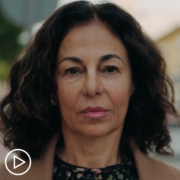

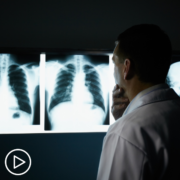
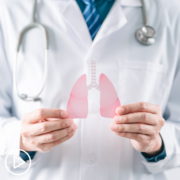
![[ACT]IVATED SCLC Resource Guide [ACT]IVATED SCLC Resource Guide](https://powerfulpatients.org/wp-content/uploads/ACTIVATED-Prostate-Cancer-Resource-Guide-1-180x180.png)
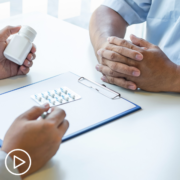
![Spanish [ACT]IVATED NSCLC Veterans Resource Guide](https://powerfulpatients.org/wp-content/uploads/Spanish-ACTIVATED-NSCLC-Veterans-Resource-Guide-180x180.png)


